Overview of Sokin and Stripe
Outside of this, customer support with Stripe is lacking and is often one of the key points raised in customer reviews. The biggest issue seems to be that is hard to solve any problems, particularly relating to account freezes.
As a new account, Sokin does not have the same amount of reviews that Stripe has. So, while on the whole Sokin reviews are positive, there is still an element of unknown.
This being said, Stripe is a good option for domestic payments. The scale of the business, and the ability to have an online and physical presence in one place is beneficial.
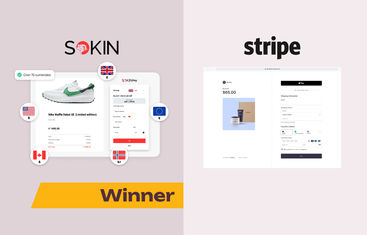
🏆 Sokin | Stripe | |
|---|---|---|
Transaction fees | from 1.20% | from 1.50% |
Refund fees | £2 / $2.50 / €2.50 | from 0% |
Settlement timeframe | from 1 day | from 7 days |
Chargebacks and disputes | £15 / $20 / €20 | £20 / $15 / €15 |
Other features
With Stripe there aren't a huge amount of other features outside of incoming payments. For this reason Sokin offers businesses much more for managing international finances.
For companies accepting cross border transactions, a local account means you do not need to convert funds after they have been accepted. Also, you can use these funds to pay suppliers. Again this reduces cost of potentially having to convert funds for a second time.
Outside of other features, Sokin's international transaction costs are cheaper than Stripe.
As a payment gateway, Stripe offers in-person payments which you will not get with Sokin.
🏆 Sokin | Stripe | |
|---|---|---|
Access to local accounts | 4 local accounts | Not available |
Access to IBAN accounts | 75 IBAN accounts | Not available |
Supported integrations | Magento, WooCommerce, Shopify | Magento, WooCommerce, Shopify, Xero, Chargeflow, Quickbooks + many more |
Batch payments | Yes - up to 5,000 | Yes - limited to 1,000 per second based on API calls |
API Integration | Supported for some core areas of the product | Offered as Stripe Connect, which allows businesses to customise and adapt the Stripe process to their needs - including for cross border transactions |
Physical checkout support | Not supported | Supported, fees start from 2.7% for payments |
Custom checkout links | Available, plus QR codes | Available |
Recurring payments | Accepted, offers differ depend on type | Acceptance subscription and recurring payments as part of batch transactions |
Earn interest | Using Sokin's balance boost feature it is possible to earn up to 3% interest on USD, GBP and EUR balances | Not offered |
The two types of Stripe account
Stripe offers two main pricing structures for processing credit card transactions. Interchange-plus and flat-rate.
Interchange-plus pricing is a model where you pay the exact interchange fee set by the card networks (Visa, Mastercard, etc.). This then has a fixed markup added by Stripe. This can be good for businesses with high transaction volumes from a range of card types. Overall, it can result in lower costs.
Flat-rate pricing is charged as a fixed percentage and fee for all transactions. This is regardless of the card type or network. This offers predictability and simplicity. It is a good option for businesses with lower transaction volumes.
The flat fee approach is also how Sokin Pay works. The difference between Stripe and Sokin here, is that Sokin has a cheaper starting point in the UK (1.2%) vs Stripe (1.5%). For, US payments start at 2.5% for Sokin and 2.9% for Stripe.
Here's the key differences of the Stripe accounts:
Feature | Interchange-Plus Pricing | Flat-Rate Pricing |
|---|---|---|
Pricing model | Interchange fee + fixed markup | Fixed percentage + fee per transaction |
Predictability | Less predictable, varies with each transaction | Highly predictable |
Ideal for | High-volume businesses, businesses with diverse card types | Businesses with lower volumes, those who prefer simplicity |
Cost | Potentially lower overall | Potentially higher for some businesses |
Fees in detail per geo
UK
EU
US
Canada
UAE
Rest of the World
Stripe refund fees
Refunds aren't entirely free with Stripe. While they might not charge a separate "refund fee" in all cases, they always keep the initial processing fee. Interchange Plus customers may have an additional small fee on top of that.
Here's how refund fees work for each:
Standard Pricing:
Stripe doesn't charge you an extra fee to process a refund.
However, they keep the original processing fee they charged you for the initial transaction.
Think of it like this: You don't get that initial fee back when you issue a refund.
Interchange Plus Pricing:
Stripe charges a small percentage-based fee (starting from 0.3%) to process the refund.
They also keep the original transaction fee.
In simpler terms:
Imagine you sold a $100 item and Stripe's fee was $2.90. If you refund the customer:
Standard: You'll refund the customer $100, but Stripe keeps the $2.90.
Interchange Plus: You'll refund the customer $100, Stripe keeps the $2.90, and they might also charge you a small extra fee (e.g., 30 cents).
Multi-currency and local accounts
Multi-currency accounts are a way of holding local currencies. You also get local account details. This makes it easier to send and receive cross border payments. Having local accounts synced to a payment gateway, like Sokin Pay, is a massive plus. Airwallex or Payoneer also offer local accounts alongside payment gateways.
The difference here is that you do not need to pay to convert the money after the transaction. Buyers can also purchase from your business in their native currency. All round, this reduces costs.
For comparison, with Stripe, if you were to accept a payment in a different currency, you would then have to pay to convert it.
Here's the different local accounts offered.
Currency and Country | 🏆 Sokin local accounts | Stripe options |
|---|---|---|
USD: United States | Account number | Not available |
CAD: Canada | Account number, bank code | Not available |
EUR: EU | IBAN | Not available |
GBP: United Kingdom | Account number, sort code | Not available |
Within these accounts you can also earn interest as part of a Sokin balance boost. This will pay 3% for balances locked into a boost for 60 days. Keep in mind you will not be able to access these however. Wise Business also offers interest on some local currency accounts.
Integrations and pre-built options
The marketplace options offered by Sokin and Stripe differ hugely. Stripe has a lot more to offer overall.
Both Sokin and Stripe offer:
WooCommerce
Shopify
Magento
Stripe's additional support covers:
Adobe Commerce
Chargebee
Commerce.js
Lemon Squeezy
Recharge
Salesforce
Shopify
WooCommerce
Clover
Lightspeed Restaurant
Oracle Opera
Routable
Tipalti
Flexport
Xero
Connecting with the Sokin API
We have focused on 'native' connections and apps within both Sokin and Stripe.
Stripe has a lot to offer in terms of 'plug and play'. This convenience, in part, is where the cost increases.
The Sokin API can be used to a achieve a lot of what is offered by Stripe, but you will need development support to achieve it.
Checkout options compared
Sokin offers the ability to be used as a payment gateway and to create payment links. Stripe offers both of these and in-person transactions.
Of course, what you will need will be dependent on your business. For online and payment link transactions, Stripe is more expensive than Sokin.
If you're looking for physical support as well, and have a need to accept cross border payments: GoCardless is a better option than Stripe.
Again, they are cheaper than Stripe (although, not cheaper than Sokin). This cost translates into the physical devices as well.
Payment links
Payment links and QR codes can be used for generating payment requests through both platforms. There isn't too much in the way of difference between Stripe or Sokin here.
Physical terminals
For those looking to use Stripe for physical use, the terminals available are:
Terminal | Device Type | Payment Types | Connectivity | Display | Battery Life | Special Features |
|---|---|---|---|---|---|---|
Stripe S700 | Android smart reader | EMV chip, contactless, magstripe | Ethernet, Wi-Fi, Bluetooth | 5.5-inch IPS LCD | Up to 15 hours | On-reader tipping, custom splash screens |
Stripe M2 | Compact mobile reader | EMV chip, contactless, magstripe | Bluetooth | No display | 28 hours | Supports offline mode |
BBPOS WisePOS E | Smart countertop/mobile reader | EMV chip, contactless, magstripe | Ethernet, Wi-Fi, Bluetooth | 5-inch touchscreen | Up to 12 hours | On-reader tipping, custom splash screens |
BBPOS WisePad 3 | Compact mobile reader with PIN pad | EMV chip, contactless, digital wallets | Bluetooth | 2.4-inch LCD | 15 hours | On-reader tipping, PIN pad |
Tap to Pay | Contactless payments via smartphone | Contactless (cards and mobile wallets) | NFC-enabled smartphones | Phone screen | Dependent on phone battery | No additional hardware needed |
Outgoing cross border payments
Using Sokin you can make international payments. This could be to suppliers, or for things like marketing.
These cost from 0.3% if currency conversion is being used. If you use a balance already in a multi-currency or IBAN account there is no cost.
This option is not available with Stripe.
For Sokin, the breakdown of costs for international payments are:
Service | Sokin Fees |
|---|---|
Local transfers | No fees |
Sending money abroad | No fees |
Currency conversion rates | Starting at 0.3% |
Receiving fees | 1.2% |
Storing and holding currency | No fees |
Monthly account fees | No fees |
Setup fee | No fees |
Payment management and tracking fee | No fees |
Mass payments fee | No fees but currency conversion fees apply |
Integration fees | No fees |
Other fees | None |
API support
Overview | 🏆 Sokin API | Stripe API |
|---|---|---|
Core Services | Payment processing, marketplace payments, onboarding, payouts. | Global payments, multi-currency payouts, domestic payments |
Target Users | Online marketplaces, platforms, SaaS companies, developers needing payment integration. | Businesses and enterprises needing global payment solutions. |
Supported Countries | Available in over 40 countries for businesses; accepts payments from customers worldwide. | Offers services in over 200 countries and territories. |
Pricing Model | Transaction-based fees; custom pricing for high-volume users. | Subscription-based model; fees for certain services (details may vary). |
Key Features | - Easy API integration - Customizable onboarding - Global payouts - Fraud prevention tools | - Fixed-fee pricing - API for enterprise integration |
Integration Support | Extensive developer documentation, SDKs, and support for multiple programming languages. | Developer support and documentation for API integration (specifics may vary). |
Security Measures | PCI DSS Level 1 compliant, advanced fraud detection, encryption of data in transit and at rest. | Compliance with financial regulations, data encryption, secure transactions. |
Documentation and Developer Support | Comprehensive documentation, developer community, sandbox environment for testing. | Documentation and support for developers integrating with Sokin's APIs (details may vary). |
Payment Methods Supported | Credit and debit cards, ACH transfers, digital wallets, various local payment methods. | Supports debit and credit cards, and bank transfers. All can have automatic currency conversion added |
Settlement Currencies | Supports over 135 currencies for payment acceptance; payouts in multiple currencies. | Offers automatic settlement in 18 currencies - although thee will need to be converted to a local account outside of Stripe |
Compliance and Regulation | Compliant with global financial regulations, KYC/AML procedures, data privacy laws. | Compliant with financial regulations in operating countries, KYC/AML procedures, data privacy compliance. |
Experience and support
One of the common problems found with Stripe is how difficult it is to use. Customers regularly vent frustrations at accounts being frozen. Then a lack of customer support in resolving issues, relating to the freezes or otherwise.
Ease of use
As a platform, Sokin has an easy to use dashboard, with most elements available within one or two clicks.
With Sokin, you also support on account setup. Then will have ongoing access to a customer support team, so any problems are easily solvable.
With Stripe this isn't always the case. As the platform attempts to cater for any payment need, it can feel like a lot of the options are irrelevant.
This being said, once you are setup, and working, Stripe remains powerful.
While we've outlined Sokin as being a winner against Stripe in most areas, its 37% market share is a testament to the product as a whole.
Customer feedback
Where Stripe is really hurt, and where Sokin is starting to excel, is customer feedback.
It's not that hard to find bad sentiment for Stripe.
For Sokin, reviews have been largely positive since launch for its business offering. We should say, with Sokin Pay still in its infancy, there isn't a huge amount of customer feedback online yet.
Choosing a winner
Sokin is a winner against Stripe, because of:
Sokin offers access to 75 IBAN accounts 4 local accounts. Stripe does not offer local accounts
Sokin transaction costs start at 1.20% vs 1.50% with Stripe
Sokin has international transaction costs that are 0.75% lower than with Stripe
Sokin has an easier to use platform and better customer service
Sokin offers extras like interest rates through balance boosts

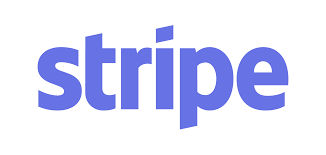
.png)







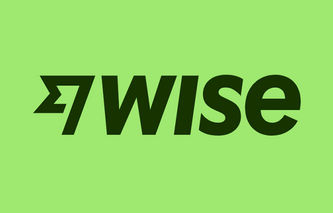
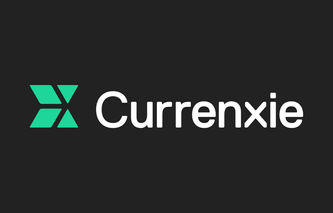
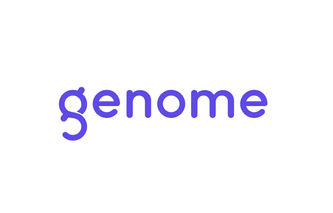
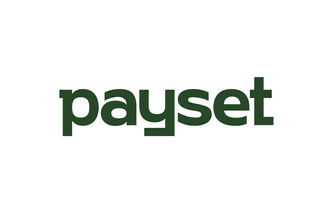
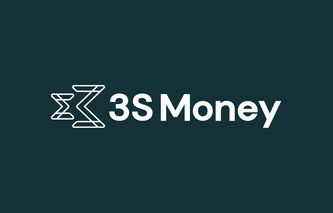
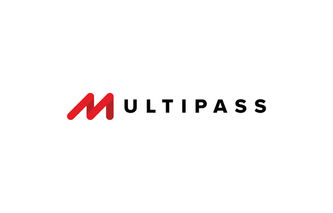
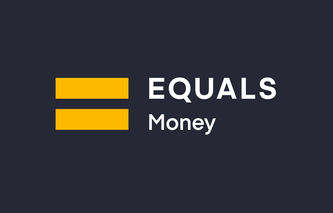
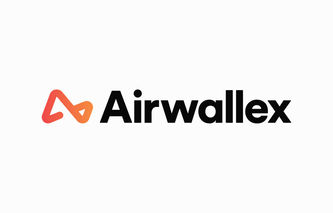
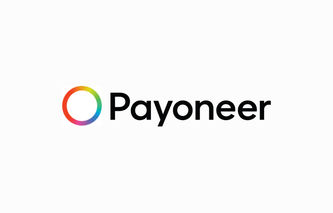
.png)


.png)

.png)
.png)
.png)
.png)
.png)